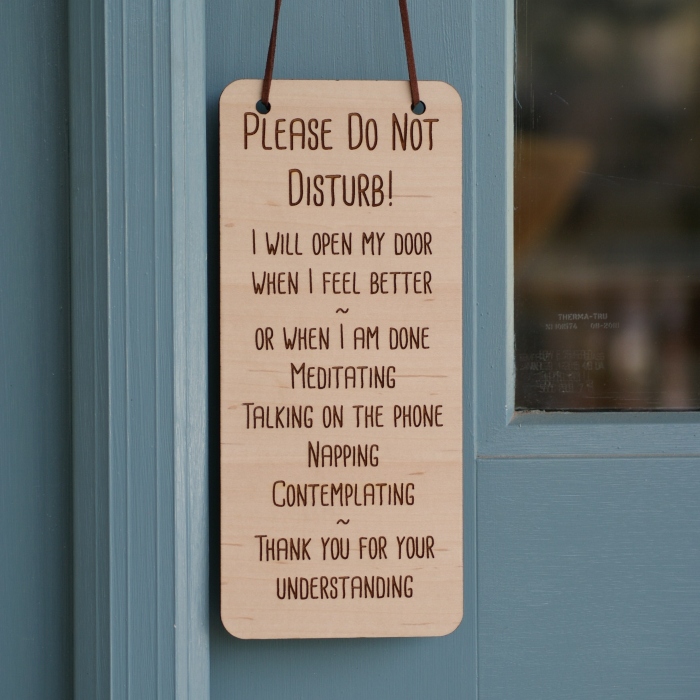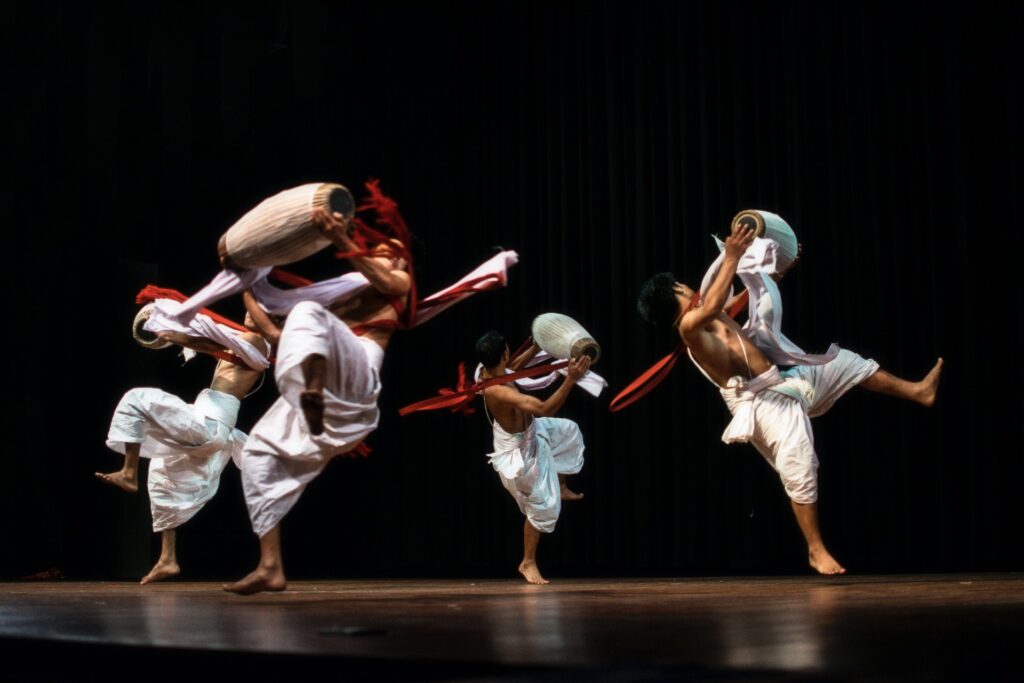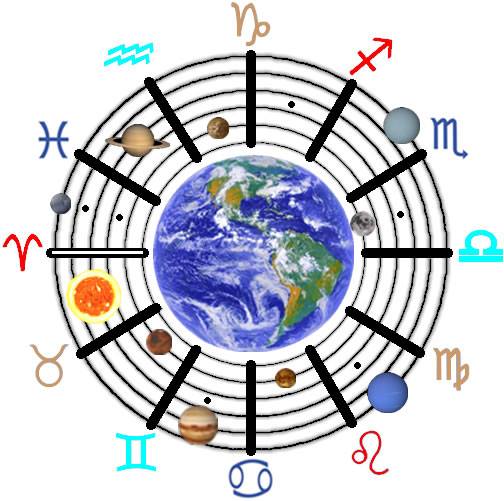Human beings tend to be on top of our game for the most part; even the clumsiest among us manage to survive our daily obstacle courses. We tend to take for granted when things are going smoothly, and we may get a bit too confident in our stride. That’s when Murphy’s Law comes along and reminds us just how wrong we can be. If we didn’t have Murphy to blame for our mistakes, we wouldn’t have a shred of confidence left. And though it sometimes makes perfect sense, there is an inherent flaw in Murphy’s law.
Murphy’s law is the popular adage “Anything that can go wrong, will go wrong.” This fundamental principle predates Murphy and his law, but the comic oversimplification has stuck. In its modern form, it makes no mention of timing. Taken literally, it suggests that everything will always go wrong. If this were true, we would have nothing to show for any effort ever made in history. The actual principle is that everything goes wrong eventually, primarily when dealing with tools and technology. It’s a simple reminder to take extra precautions, just in case. Because we can never know when something may go horribly wrong. Or can we?

It makes sense that things go wrong sometimes, but when? Without any mention of timing, how can we ever be confident in our words and actions? We know to avoid boldly ironic statements that tempt fate, such as “What could possibly go wrong?” Or “At least it’s not raining.” Cue the thunder! Even the most rational humans try to avoid words and actions that might summon some mysterious force determined to make us look foolish. Murphy’s law seems to be either on or off as if someone or something were flipping a switch. And if we could observe that switch, we could simply alter our behavior while Murphy’s Law is in effect.
Moon Time
Astrologers have been observing that switch in the Moons’ cycle for some time. As the Moon transits each sign, she makes several aspects to the other planets. When the Moon makes her last aspect in a sign, she’s considered “Void of course,” or “VC” until she enters the next sign. This period can last anywhere from several minutes to several days but typically only lasts a few hours. When the Moon finishes her to-do list, she’s ready for some me-time. No matter what sign she’s in, the sign on the door reads: “Do not disturb.” We all do the same thing, but we tend to sync up with the Sun at the Moon’s expense.

We prefer to conduct most of our business between the hours of 9am to 5pm, Monday through Friday. And wouldn’t it be convenient if the Moon followed the same schedule? Unfortunately, the Moon is anything but convenient. There are times when she won’t seem to let us get any rest and times when she won’t let us get anything done. We rarely know why things don’t seem to be working as they should, and we struggle to explain exactly what went wrong. Murphy’s law is one way to rationalize our experience, but it’s just a stand-in for those who aren’t familiar with the Moon void of course.
There are countless factors to consider before taking any action, and we hope that we’re not missing anything important when we do. But when the Moon is void of course, the most critical piece of information is missing from the equation, and we may not realize it. An assumption will undoubtedly foul us up, but we won’t know what it is until it’s too late. And when everything blows up in our faces, we may feel like a fool. We may even wish that someone would have warned us and prevented our folly. But part of our folly is not listening to the warnings or paying attention to the signs.
Void of Course (VC) Guidelines:
Adjusting our behavior patterns to be in accordance with the Moons’ VC phases takes a tremendous amount of self-discipline, restraint, and patience. We may be able to observe that switch, but we cannot turn it on and off when convenient for us. There are guidelines to follow during these times, but they feel unnecessarily oppressive. While it might be nice to know when to be extra cautious, it can also be somewhat annoying. The underlying message is to simply wait until the Moon enters the next sign before pursuing anything we deem important.
When the Moon is VC, DON’T:
- Think, say, or do anything important.
- Spend any time, energy, or money you can’t afford to lose.
When the Moon is VC, DO:
- Routines: Chores, Rest, Relax, exercise, games, etc.

Tried and True
Activities that we do routinely are not likely to go awry when the Moon is VC. So, what constitutes a routine? And what is the opposite of “routine?” Anything that we’ve done three or more times recently is a routine. It doesn’t have to be a chore or boring at all, as long as we’ve done it at least thrice in the past weeks or months. It can even be something that we find very exciting, though it can be challenging to maintain the same level of excitement each time we do it. The first time we try a new activity, there’s a lot of risk involved, but it fades as we become more confident in our success.
If we look closely at our daily activities, we can see that the routine and the spontaneous often overlap. We take risks that we wouldn’t otherwise take because we feel so comfortable in our routines. If we establish our routines when the Moon is NOT VC, we can safely repeat them when it is VC. But if we change the routine in any way, our experiment is likely to fail. If we have a routine of jumping a motorcycle over a car, we may want to add cars to recapture the initial excitement we once felt. We can still jump a motorcycle over a car when the Moon is VC, but it’s not a good time to add more cars.
Void of Course Stories
When I first began to observe the Moon VC phases in the mid-’90s, I asked my mentor for her thoughts. She said that when the Moon is VC, “everything seems to fall into a hole.” With another Void of Course phase about to begin, I decided to test this principle and go for a walk in the woods behind my house. I had an established path I routinely took, so I intentionally wandered off on trails that were entirely new for me. I soon found myself caught in some brambles without any trail to follow. I wasn’t lost; I just didn’t know where I was until I found my way back to the main path.
I started to walk back towards the house, thinking that my experiment had ended, contemplating the results in my head. I was walking around a particularly large mud puddle when, suddenly, my feet betrayed me. I slipped into a puddle the size of a large bathtub and was immediately covered in mud from head to toe. It was surprisingly difficult to escape once I was in it. To an onlooker, I would

have appeared to be mud-wrestling myself and putting up a pretty good fight. After eventually clawing my way out, I started walking home again, covered in mud, laughing at myself.
Personal Experience
This is my story, but it’s essential to collect your own. Try observing the Moon VC phases without altering your behavior and simply take note of the things that you say and do. It won’t be long before you have a story, not unlike mine, and hopefully, you’re able to laugh at yourself. Don’t just take my word for it; test it out for yourself. But limit the risk factor, and don’t be surprised when something pulls the rug out from under your feet. Once your personal experience convinces you, you can decide if you’d like to follow the Moon VC guidelines yourself.
We can still collect plenty of VC stories, especially as we observe those around us. We may even try to warn others, but they won’t be convinced until they have their own stories. Remember that astrology requires discipline, and there’s a significant difference between discipline and self-discipline. It’s OK to tell others when the Moon is VC or not. But it’s crucial that we allow them to learn their own lesson. The chances are that no one will get seriously injured unless other factors indicate danger. But we can easily avoid many missteps, follies, and failures in life if we respect the Moon’s fickle nature.
Bright Side of the Moon

Talking about the Moon VC is a bit like discussing winter in excruciating detail without mentioning the other seasons at all. Winter can be oppressive, especially if we enjoy summer activities. But we only experience winter weather about a quarter to a third of the time. This is also true for the Moon VC phases, which in total only take up about 25-35% of our time on Earth. The rest of the time, the Moon is NOT VC, and we’re
free to be more spontaneous and adventurous. There are other factors to consider, and we may still want to be somewhat cautious. But the Moon is giving us the green light for most activities.
Time is Rhythm
Cyclical Dynamics is the bridge between Astrology and Music Theory and gives us a new perspective on all things astrological. As we sing, play, and dance along to the music of the spheres, our timing is as important as the steps that we take. While musicians count out the beats in each measure, the dancers on the dance floor simply feel the rhythm intuitively. Most measures are separated into four beats, or “Common time,” and we can count along 1-2-3-4. After the fourth beat, we start over at one, repeating the sequence like a mantra. Without any special training, anyone can count along with this rhythm.
The first beat in each measure is called “The one,” and it has a certain gravity that we can feel. There is a pulsating magnetic force that draws the drummers hand to the drum and the dancers foot to the floor. Whether we’re playing an instrument or just dancing along, we’re waiting for the one to drop. This is the moment we emphasize with our actions, knowing that the beat will always be there to back us up. We like to demonstrate our impeccable timing by stomping our foot or pointing dramatically at the ceiling. But if we lose our rhythm and step a moment too soon, we may only succeed in demonstrating our bad timing to any observers.
Like No One is Watching
Of course, we should dance like no one is watching, and for many of us, no one is watching. But the reason we do this is so that we can listen to the music, feel the rhythm, and dance to the beat. When we’re distracted by how others perceive us, we begin to step out of time. We have a great deal of freedom to move around the dance floor. And while some beats in the measure can move around, or swing,

the one is always right on time. We’re free to express ourselves in any number of ways, as long as we keep this rhythm. There’s just a brief moment at the end of every measure in which we suspend activity until that magic beat drops.
We wait for red lights to turn green. We wait for the Sun to rise or for the snow to melt. We’re told to be patient and wait for so many things in life. We’re not eager to add another roadblock on our path to freedom. But if we can see life as a dance instead of a race, we may ease some of the urgency in our steps. Sometimes the gateways and roadblocks are there because we’re trying to rush through to the next beat. These gates open in time, and if we find the right rhythm, we can catch many green lights in a row. Even as we wait patiently for the one to drop, we are all dancing to the music of the spheres.

